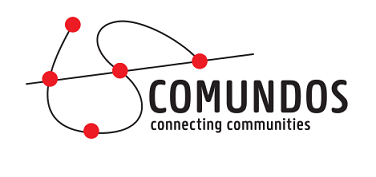Rice Not Bullets
Zero hunger is UNESCO's top 2 Sustainable Goal. How come many FARMERS, who provide food security to the world, end up hungry themselves and victims of human rights abuses? Such a paradox is the deadly struggle of the Kidapawan farmers in March, 2016 in my homeland Philippines.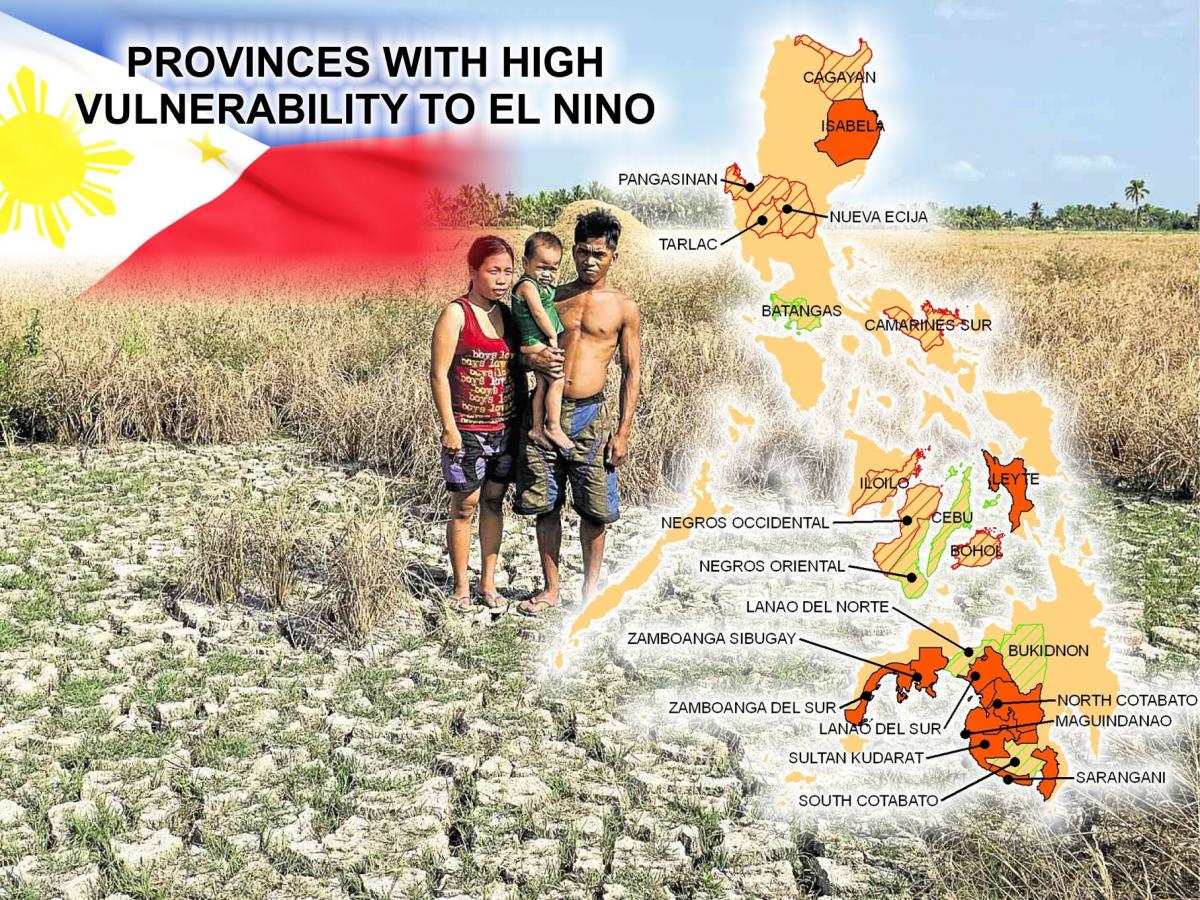
Our tropical location makes us most vulnerable to climate hazards. For five months since November 2015, El Nino had caused stifling draught.
Our people were starving. The farmers were suffering especially from income loss and famine. Desperate, they asked for food before the National Food Authority but were turned away. Drought-resistant seeds only were released in February, but it was too late. 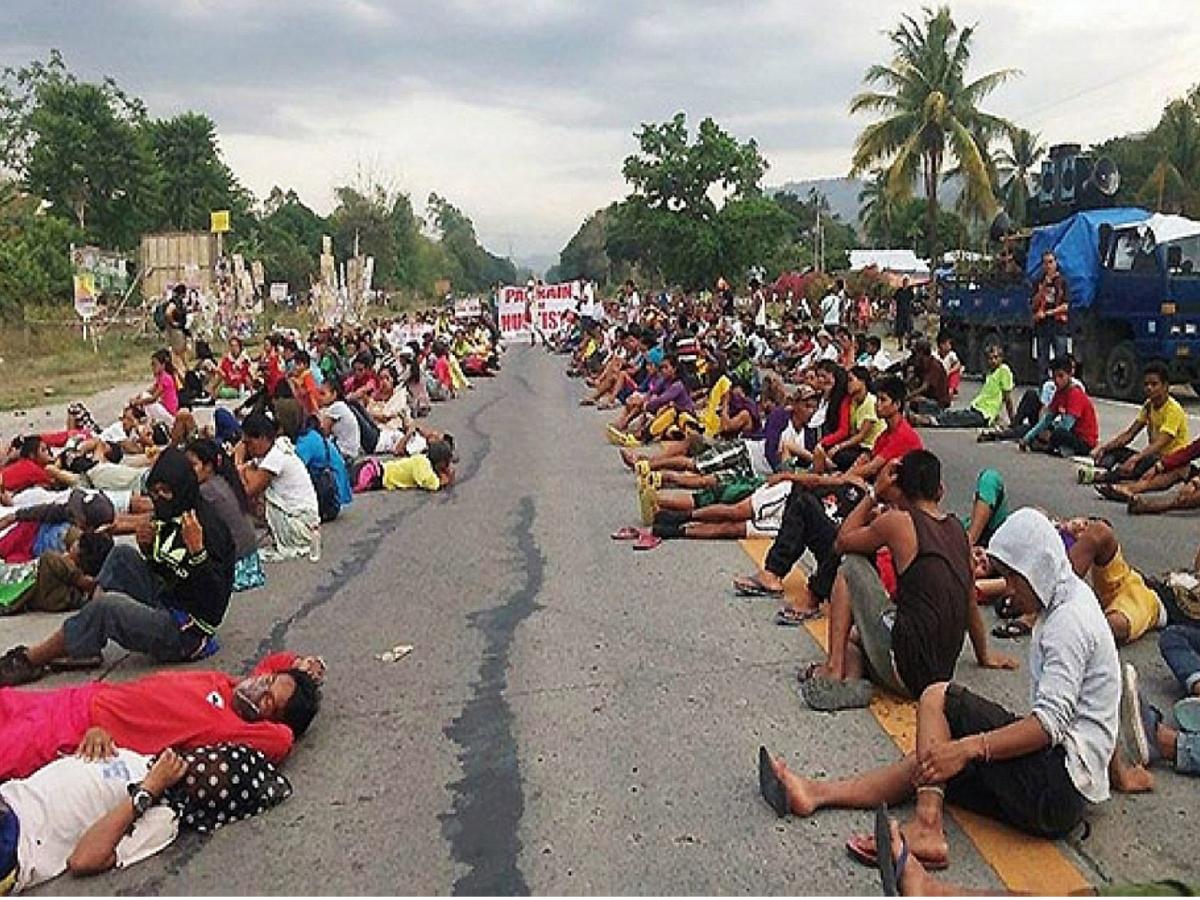
Finally on March 29, 2016, over 500 Kidapawan farmers and 6,000 locals took to the streets under the scorching sun, demanding food from the government. But Governor Taliño-Mendoza, who previously promised to give rice, refused to help for administrative reasons. At 10am on March 30th the protest permit expired. The police came in violent force to break up the protest, using batons, rocks, water cannons and finally guns. Three farmers were killed, 16 injured and 76 arrested.
Farming communities produce 85% of the world's food, yet they are grossly underrepresented when it comes to human rights. So far, the only international treaty for them is the International Seed Treaty, but seed is not the only need. With worsening climate change, we must increase our support NOW and defend the very hands that feed us or this history will repeat itself in more countries.
How to use this story in a classroom?
The authors of the video created didactical material (click to download or find it below) to start a constructive dialogue.
In words of the authors:
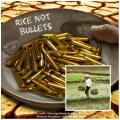
"In today’s techno-savvy generation, integrating the use of digital films in education is one powerful way not just to raise awareness on certain issues and worthwhile causes but also to keep the participants engaged, and to move them into doing concrete action.
Last January 11, 2018, a team of Postgraduate International Educating Class (PIEC) students from UCLL, Belgium --- Eliza Cody, Danette Garcia and Rita Ebong --- conducted an “Info-Session and Workshop” entitled: “Rice Not Bullets: Defending the Human Rights of Farmers” as their Internship Project. This was part of the school’s Film and Workshop Festival at Pangaea on that day, which was joined by 3 other teams tackling various themes.
With the help of Comundos, the team created “Rice Not Bullets”, a timely, thought-provoking, and moving documentary film on the plight of farmers in crisis. Essentially, this digital short film underscores how human rights is complicated by worsening climate change. After experiencing severe drought for months, the starving Kidapawan farmers in the Philippines went to the streets on March 29, 2016 and blocked the road under the scorching heat of the sun to desperately beg for rice from the government. Rice Not Bullets brings a local story to the global community, addressing the very reality faced by farmers worldwide. A symbiotic relationship exists between human rights, climate and culture and the plight of farmers represents this triad complexity. Putting faces to these farmers shows the true urgency and importance of the UNESCO’s Sustainable Development Goal of “Zero Hunger”.
The timeliness of “Rice Not Bullets” creates a sense of urgency amongst viewers to act and stand up for those in need. This story is highly relevant to all watching because farmers are the backbone our economic system and provide food security to all of us. As a didactical material, the film makes the viewer feel empowered, as if they need to take action immediately.
Through the Info-Session and Workshop, the team raised awareness on the global significance of the farmers, connected the story to the viewers themselves through the value of Care and Empowerment, and finally, helped the participants identify tangible ways to improve human rights for farmers locally and internationally whether as individual or as a group.
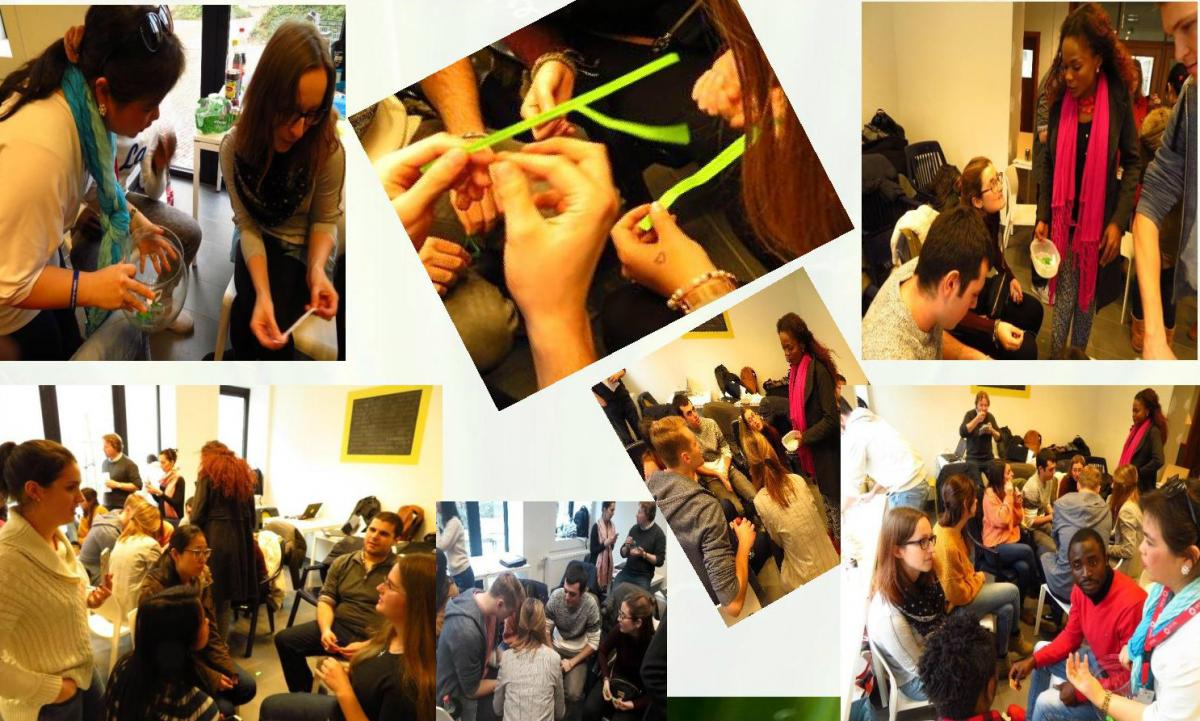
The workshop ended with the “Act Now Campaign”, where participants were encouraged to help spread awareness to support the farmers worldwide by sharing the videolink of “Rice Not Bullets ” film. We invite you, dear readers, to please kindly also watch and share the above videolink to raise awareness on the plight of the farmers, as a small way of giving back our gratitude to them as food supplier.
We would like to share here our Film Flyer Guide, plus the Handbook and Viewing Guide, which is a standalone Instructional Guide for teachers/lecturers/educators who would be viewing our film “Rice Not Bullets” with students. It contains an overview of the main topics, talking points for each topic and guided questions to use in class. Alternatively, this handbook can also be used by others simply to guide their view and answer questions about the film.
Here are some comments from Info-Session and Workshop Pangaea:
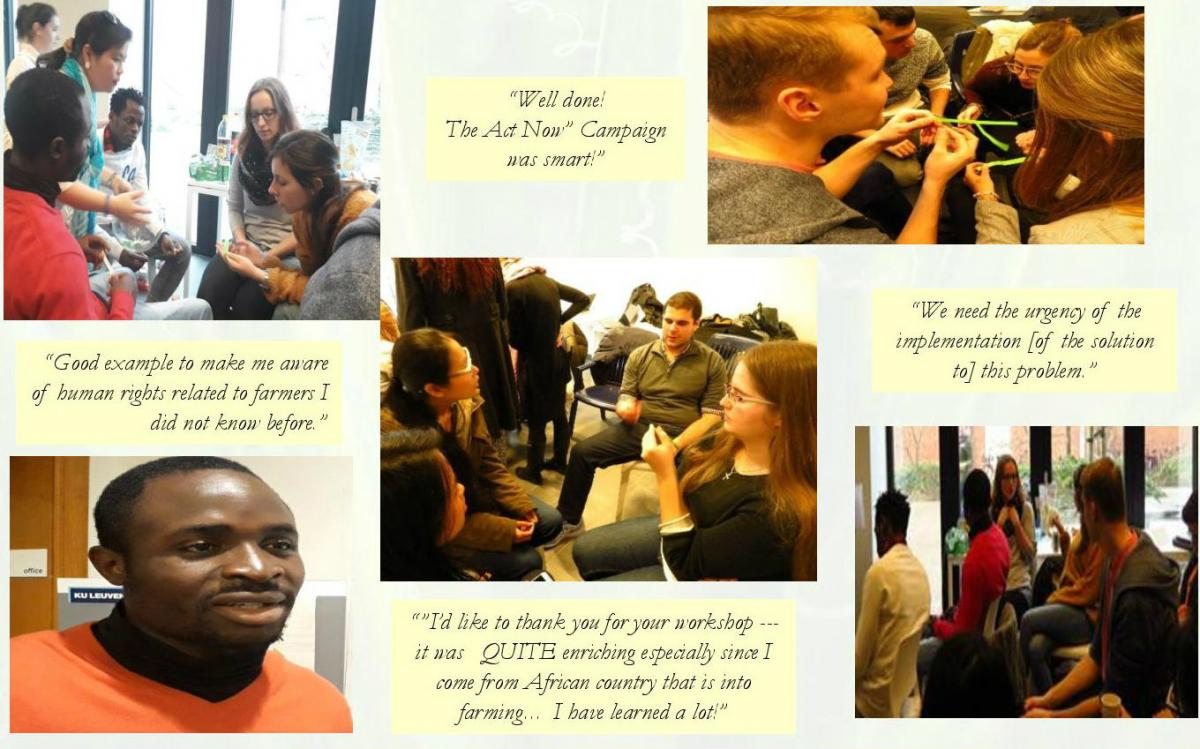
Interviews were also conducted before the workshop to gauge general awareness on the issues of the farmers, as well as after the session to recap lessons learned:
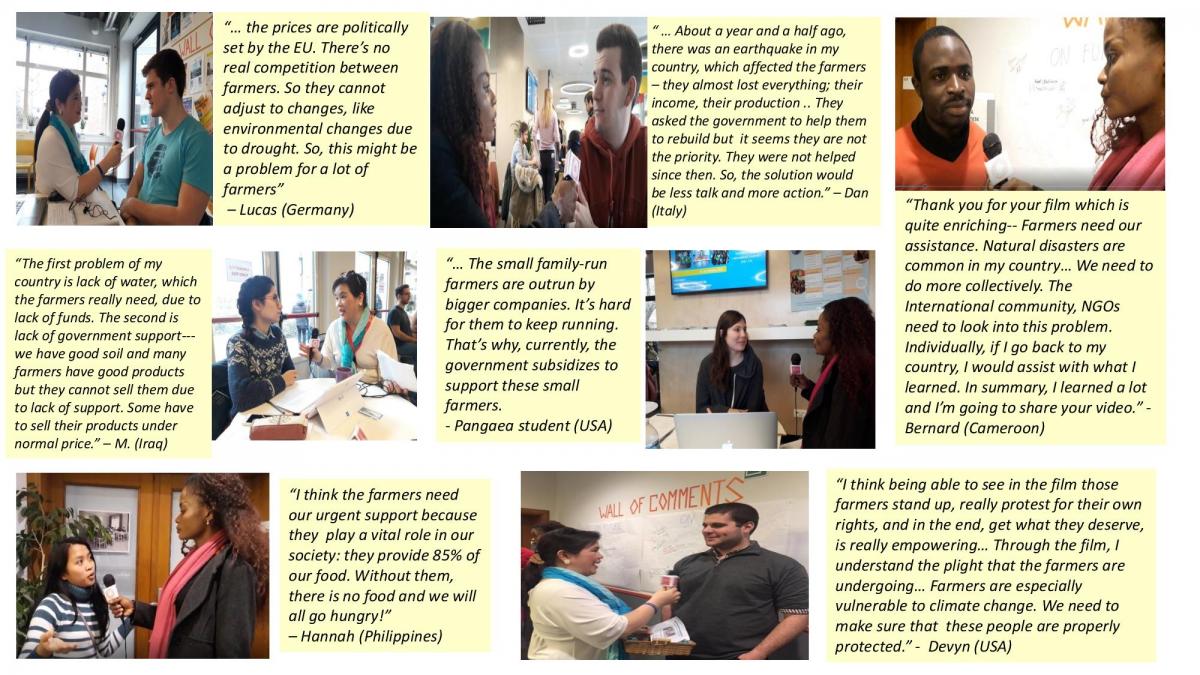
The team expressed their heartfelt thanks to Comundos, particularly to Mr. Bart Vetsuypens, for imparting the know-how on how to make compelling digital films using 250 powerful words in only 2.5 minutes. Special thanks also to UCLL Internship and Project Management Lecturer Dima Bou Mosleh for her guidance and support, to UCLL-PIEC Fall Semester 2017-2018 classmates, and to all the participants at Pangaea."
A gift for Comundos
Over the years, Comundos has helped remote communities around the world by teaching critical thinking, media literacy and the use of communication technology.
To do this effectively, we need your support for computers, translations, courses and social media management.
Thank you .
BE11 1030 2973 8248
